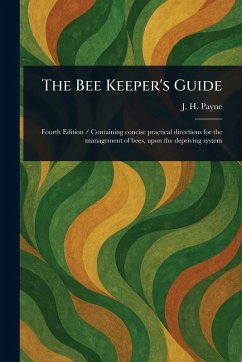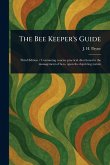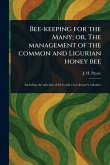Delve into the timeless art of apiculture with J. H. Payne's "The Bee Keeper's Guide, containing Concise Practical Directions for the Management of Bees upon the Depriving System." This meticulously prepared reprint of the fourth edition offers a fascinating glimpse into historical bee culture and honey production. Payne's guide provides concise and practical directions for bee management, focusing on the depriving system - a method of honey harvesting. Explore the world of honeybees through the eyes of a seasoned beekeeper. Discover techniques for successful bee management, essential for both novice and experienced apiarists. "The Bee Keeper's Guide" remains a valuable resource for anyone interested in animal husbandry, entomology, and the natural world. A treasure for those passionate about beekeeping and the fascinating lives of bees. This work has been selected by scholars as being culturally important, and is part of the knowledge base of civilization as we know it. This work is in the public domain in the United States of America, and possibly other nations. Within the United States, you may freely copy and distribute this work, as no entity (individual or corporate) has a copyright on the body of the work. Scholars believe, and we concur, that this work is important enough to be preserved, reproduced, and made generally available to the public. We appreciate your support of the preservation process, and thank you for being an important part of keeping this knowledge alive and relevant.
Bitte wählen Sie Ihr Anliegen aus.
Rechnungen
Retourenschein anfordern
Bestellstatus
Storno









